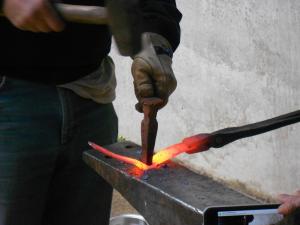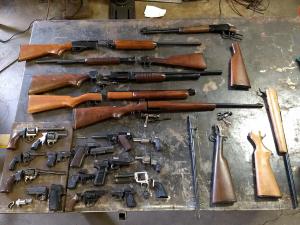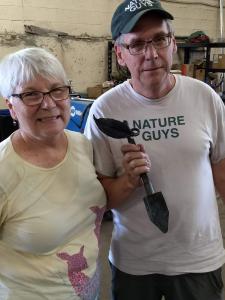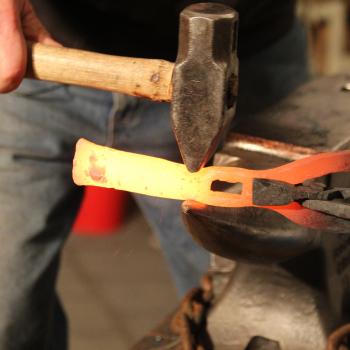Many folks are wearing orange today, June 1st, and gathering together over the weekend for Wear Orange Weekend for gun violence awareness. It’s one of many forms you can take action on to show solidarity in your community.
Orange was chosen because it’s the color hunters wear to protect them against other hunters. June 1st and the month of June were chosen because it’s the birth month of Hadiya Pendleton, who was shot and killed just one week after performing in President Obama’s inauguration in 2013. Its also the color of hot gun metal being turned into a garden tool.
Nobody likes gun violence do they? While there are people and organizations that profit from guns, the overwhelming majority of us would like to make gun violence disappear. We all have different solutions, but we can all be held accountable to reducing gun violence, whether you think it’s a gun problem or a heart problem, you can identify something that can help. Once you’ve done that, you can take action.
But this is the hard part isn’t it? When we talk about gun violence we have to talk about the issues behind it. Why are teenagers trying to impress a gang by stealing a gun and often using it? Why is it so easy to buy guns and resell them (to “bad guys”) without a license to do so? Why isn’t more training required similar to driving? Consistently, 2/3 of gun violence is suicide. How many of us are knowledgeable in mental health first aid? Why aren’t red flag laws a given? We can talk about access to guns, and much of the gun conversation lives in this dialogue (often with raised voices or all caps on social media), but are we talking enough about the systems and environments that lead to someone seeing a gun as a solution to their problems?
We know about the old testament scriptures that tell us about beating swords into plowshares and spears into pruning hooks. Some of us know the next part about training/learning of war no more, but do you know about Micah’s addition? He talks of sitting under a vine and fig tree, in fear of no other. There is much to glean from this verse and the significance of a vine and fig tree in those days. It provided shelter and food (and wine). Are we in fear of no other because we no longer know what war is? Are we in fear of no other because everyone has their vine and fig tree? Is their nothing we have that another doesn’t already have? How do we get to this place? How do those of us who know of war get to a place without it? Or how do we prepare the way for the next generation to get closer than we are?
One solution is to embrace economic models that respect the earth’s resources as well as the labor force. This may seem like a rabbit trail from the gun violence debate, but it’s part of why we give scholarships to low income students and priority funding to schools in low income neighborhoods. Its why disadvantaged youth see the advantage of gang membership. Some people call this trickle-down economics, that through charity/grants/gifts, wealthy people and institutions will funnel their wealth to the less fortunate. Except the income gap is widening. If this idea was making a change, it should be getting closer.
What if we changed how the system worked? What if ownership was spread to workers? Many call these systems solidarity economies. They exist inside/alongside our current economic system. They have horizontal power structures instead of top-down hierarchies. They have a social impact not just as an ethical/moral way to do business, they also model how to value each other. They provide framework for a church to have a positive impact as a hub in their community for economic growth. This framework sees the value in a vine and fig tree for everyone, because it values everyone and their ability to contribute to their local neighborhood’s economy.
If our economy seemed less violent and exploitative, would we then model that on an interpersonal level? If our business models showed that power with/power under was a better way to work than power over, might we reach for different tools. In an economic capacity, if we used our arms to lift each other up or rest on each other’s shoulders, might then we eliminate the need to bear arms? If we model a narrative of mutual, nonviolent empowerment, we can create an atmosphere where its easier to gain access to resources for basic survival above a poverty line and below a vine and fig tree.
Creating a solidarity economy is a tangible way to address the complex issues of gun violence. I want a world where my 10-month-old and 4-year-old sons learn of war and gun violence no more. My 4 year old’s favorite color is orange.












